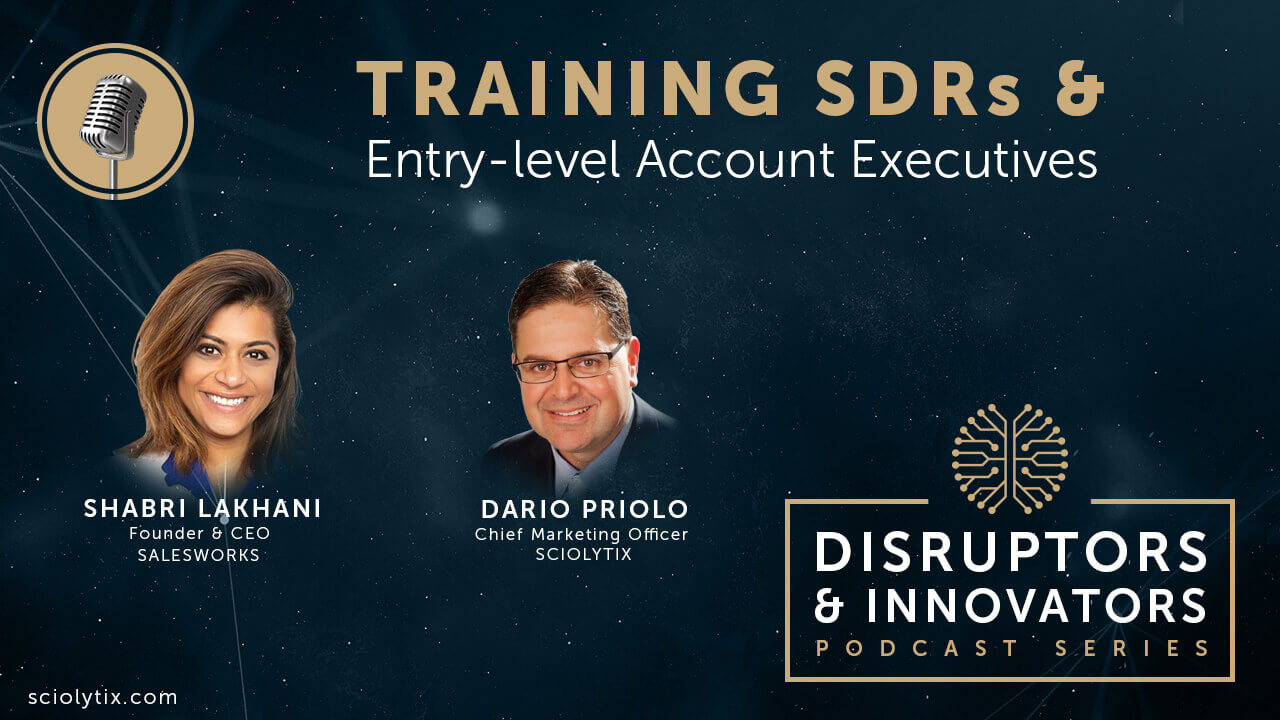
Traditionally, hiring is based on experience. But when it comes to hiring a Sales Development Rep (SDR), nothing could be further from the truth. For most companies, the role of Sales Development Rep is an entry level sales position offered to young, hungry college grads with no sales experience at all.
However, the role can be crucial to the success of the sales organization. An effective SDR can move solid leads down the funnel so seasoned sales reps can focus on closing, instead of prospecting and qualifying.
In our recent podcast interview with Shabri Lakhani, founder of Salesworks, “skills” were identified as one of the four S’s of setting Sales Development Reps up for success.
Here’s 5 tips to help mold a new SDR into a top performer:
1. Give New SDRs the Gift of Time
While companies are getting better at hiring for aptitude and attitude, according to Shabri, many companies forget that to support SDRs new to the workforce with skill development – even skills as basic as sending a calendar invite. And that skill development takes time.
“Management can’t be restricted on bandwidth and hire young, really green SDRs because you can’t take a new, unexperienced hire’s skills for granted.”
2. Train Industry First, Product Second
Many companies seem to think that if they tell SDRs what the product is, they can go and sell it. That’s a mistake.
Assume new hires know nothing about your industry. Otherwise, management can waste time coaching and training on product details newly hired SDRs don’t understand. “I once spent three days training reps on a finance company’s treasury solution. After three days I realized these people don’t even know what the Treasury does. I started training all over with ‘What is a bank?’”
If an SDR doesn’t understand an industry, how can they understand a prospect’s challenges and pain points. One thing Shabri encourages management to not overlook: “Business acumen drives business conversations.” Industry training helps develop business acumen which enables SDRs to better qualify leads.
3. Don’t Overlook the Soft Skills
Training can be relegated to high level discovery, but that can overlook the development of soft sales skills that are crucial to sales success.
For instance, new SDRs may be unaware of how to ask questions that intensify pain points and build a better case for the solution they are selling. These soft skills require either real-world field experience, or hours spent within simulated selling situations.
4. Train to Retain
Those SDRs with the right attitude and aptitude for sales? They are also hungry to learn. While sales skill development is essential during the onboarding process, it is equally important when it comes to retaining SDRs. “Training is one of the most motivating factors when it comes to SDR growth. Especially during the pandemic. The question I am asking leaders is: ‘What are you doing right now to invest in your reps so they can be motivated and ready when things bounce back?’”
5. Sales Managers Should Treat Coaching as Programmatic
A lot of time is invested into devising methods of coaching more effectively. One thing the sales organization can do to make sales coaching of new SDRs more efficient is to clearly communicate the training content to management. This prevents management from wasting time trying to figure out which industry nuances or product specifications were covered during training, enables management to create a programmatic approach to coaching, and speeds time to sales competency.Skills aren’t the only path to SDR success. Listen to the full conversation on the Innovators and Disruptors podcast with Dario Priolo, CMO of Sciolytix, and guest Shabri Lakhani, founder of Salesworks, and follow us on Twitter for the latest sales enablement insights.